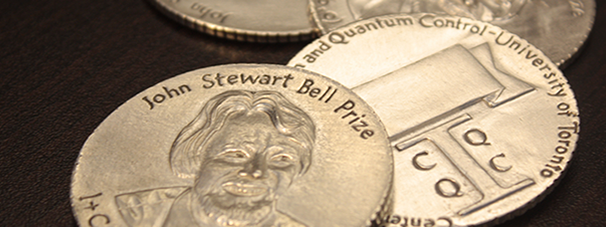This story was originally published on the Arts & Science website
In October 2019, Google scientists announced in a paper in the journal Nature that they had achieved the historic milestone known as quantum supremacy. Their quantum computer had performed a calculation which would — according to Google’s estimate — take a non-quantum, classical computer some 10,000 years to carry out.
It was the computational equivalent of the Wright brothers’ first flight, demonstrating “quantum speedup” in a programmable quantum computer for the first time.
The team was led by John Martinis, a physicist with the University of California, Santa Barbara. Not long after making history at Google, Martinis made headlines again when he left Google to return to UC Santa Barbara.
In honour of his historic research and for launching a new era of computing, Martinis is receiving the John Stewart Bell Prize for Research on Fundamental Issues in Quantum Mechanics and their Applications from the Faculty of Arts & Science’s Centre for Quantum Information & Quantum Control (CQIQC).
The biennial Bell Prize was established in 2009 by the centre and recognizes major advances relating to the foundations of quantum mechanics and to the applications of these principles. It is named in honour of the physicist who, in the 1960s, made seminal contributions to the foundations of quantum theory — contributions which continue to catalyze conceptual, theoretical and experimental studies in quantum computing, communication and cryptography.
In conjunction with the award, the CQIQC is holding an online prize ceremony and symposium June 1, featuring talks by Martinis and other invited guests. The online event is free and requires registration.
CQIQC was established in 2004 to promote collaborative and interdisciplinary research into quantum information and quantum control — including both theoretical and experimental investigations. It’s faculty are drawn from the departments of chemistry, physics, mathematics, computer science, electrical engineering and materials science.
Dvira Segal is a professor in the Department of Chemistry, cross-appointed to the Department of Physicsand interim director of CQIQC. She holds a Canada Research Chair in theoretical chemistry.
According to Segal, “The goal of the centre is to bring together the quantum community at the University, facilitate learning, training, interactions and collaborations within U of T and internationally, and establish U of T as a world-class research institute in the quantum area.”
In addition, the centre supports undergraduates in summer research projects, funds postdoctoral fellows and runs other programs. The Bell Prize is normally awarded during a biennial international conference, but the 2021 event was postponed due to the COVID-19 pandemic.
Nevertheless, people will still have an opportunity to hear from Martinis.
“It will be very interesting to hear his perspective on the development of this new, groundbreaking technology. The science behind it, the challenges, where we are currently, as well as plans for the foreseeable future for scaling up and solving quantum computing problems.”

